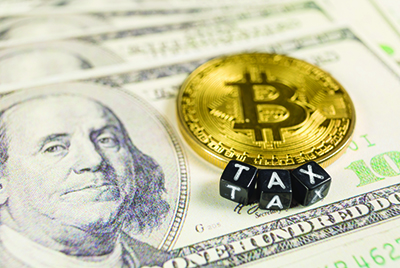The Future of Self-Custody Wallets: How to Stay Secure in a Connected World
By Mohammed Bari, Withum –
June 28, 2023

Self-custody refers to the practice of individuals or businesses holding and managing their own digital assets, such as cryptocurrencies, without the need for a third-party custodian. This can be done through the use of a hardware wallet or by managing private keys on a software wallet. This allows the individual or business to have full control over their assets and eliminates the need for trust in a third-party custodian. There are a few ways to self-custody your digital assets, but choosing the correct wallet for your situation is important.
A digital asset wallet is an electronic wallet used to store, send and receive cryptocurrencies. It can be a software application, hardware device or a paper document that contains the necessary information to access and manage one's digital assets. The wallet generates a unique public address and private key that are used to interact with the blockchain and manage the assets. The private key is a secret code used to access the assets and should be kept safe and only shared with people you trust. The public address is used to receive assets. There are various types of digital asset wallets, including:
- Desktop wallet — software that is installed on a computer
- Mobile wallet — software that is installed on a mobile device
- Hardware wallet —a physical device that stores the private key offline
- Paper wallet — a physical document containing private and public keys
Risks and Benefits
The main risks associated with self-custody include the following:
- Loss or theft of the device or hardware wallet. If a device or hardware wallet containing digital assets is lost or stolen, the assets may be permanently lost.
- Human error. Mistakes such as accidentally sending assets to the wrong address or losing the recovery phrase can result in the permanent loss of assets.
- Hackers. Self-custodied assets may become targets for hackers and susceptible if the device or hardware wallet is compromised.
- Lack of insurance. Unlike traditional custodians, self-custodied assets typically do not have the option to insure the assets being held against loss or theft.
- Lack of legal protection. Self-custodied assets typically have limited to no legal recourse in the event of a hack or other loss of assets.
The benefits of self-custody include the following:
- Control. Self-custodied assets allow for complete control over what is stored and can be accessed at any time.
- Greater security. Self-custody can be more secure than entrusting assets to a third party, as self-custodians can ensure that their assets are stored in a safe and secure manner.
- Privacy. Self-custodians can keep their assets and transactions private, as they do not have to provide personal information to a third party.
- Decentralization. Self-custody can help to promote decentralization and the use of cryptocurrencies for peer-to-peer transactions.
- No reliance on a third party. Self-custodians do not have to rely on a third party for the custody and management of their assets, which can be beneficial for assets that are not widely supported by exchanges or other custodians.
- Avoidance of counterparty risk. Self-custody can avoid the risk of a third party going bankrupt or insolvent.
Best Practices for Self-Custody
When using any kind of digital asset wallet, remember these helpful tips to avoid any mistakes.
- Always double-check where you are downloading or creating your wallets from, whether it's a cold wallet generator, web browser extension or downloading a hot wallet.
- Use two-step verification and verify the address before sending any digital assets to another address.
- Don’t keep all of your cryptocurrencies in one wallet, as that can create a single point of failure in the event of an error.
- Don’t share your “private key” (secret code) or passwords with anyone, as the phrase gives access to the wallet unless it’s a trusted party.
It's important to remember that the blockchain space is still in its infancy stage, and many people are unaware of the technicalities involved with self-custody. Every day, new measures are being introduced to improve security and privacy while ensuring the protection of one’s digital assets. Like anything else, it is important to research, learn and ask questions as needed to properly utilize this new emerging technology.
 | Mohammed BariMohammed Bari is a supervisor in Digital Assets & Analytics at Withum. |